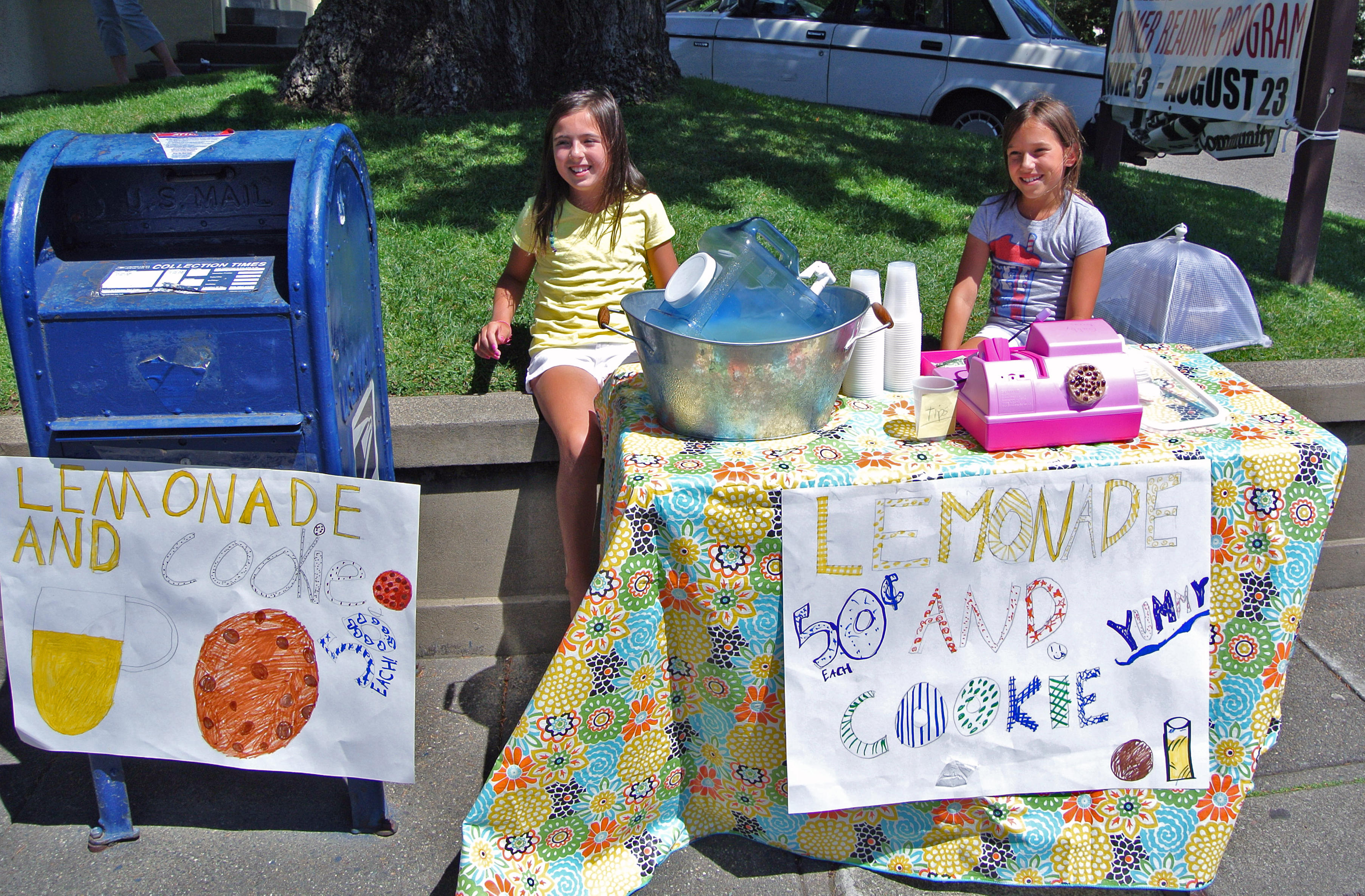How the young people of today will save the small businesses of tomorrow
The light at the end of the tunnel for small businesses might just be Generation Z and their entrepreneurial, but pragmatic, spirit


A free daily email with the biggest news stories of the day – and the best features from TheWeek.com
You are now subscribed
Your newsletter sign-up was successful
I have two sons, ages 6 and 8. When I ask them what they want to be when they grow up, they say farmer, builder, artist, video game designer, YouTuber, store owner. The games they play, like Minecraft and Roblox, inspire some of their career goals, while the YouTube videos they watch (often in languages they don't speak), inform others. Every few weeks, they want to start a business — selling lemonade or their artwork, doing chores for the neighbors, their teachers, or me. I ask them why they need money when I buy them whatever they need and most of what they want. They tell me they want to have their own money to spend. They play store and are precise in their counting, but generous in their donations to each other when the money runs low. In some ways, they are typical kids of any generation. In most ways, they are the face of the latest generation, known as Generation Z, and the future of small business.
The age range for Generation Z spans from the young adults graduating from college to the children who are just starting their preschool education. In other words, like my kids, the future of small business is still very young. But it's also a huge group — roughly 69 million people strong, according to the Pew Research Center. And all of these youngsters share one major common denominator: They are the first generation born into the digital age. This influences their worldview in profound ways. As small businesses suffer and fail in the shadows of Amazon and big-box stores like Walmart, the shining light at the end of the tunnel might just be Generation Z and their entrepreneurial, but pragmatic, spirit.
The older ranks of this generation are filled with people who care about their communities and the environment, and aspire be their own bosses while they go about curing the world's ills. In a recent study conducted by research and management consulting firm Millennial Branding, 72 percent of current high school students and 64 percent of college students said they wanted to start their own business. The fact that kids in Generation Z have their sights set on being business owners is perhaps no surprise in an age of teenage and pre-teen social media influencers, bloggers, YouTubers, and political and social justice activists. In fact, a number of young Gen Z-ers are already entrepreneurs with tremendous influence, and they want to wield it for good.
The Week
Escape your echo chamber. Get the facts behind the news, plus analysis from multiple perspectives.

Sign up for The Week's Free Newsletters
From our morning news briefing to a weekly Good News Newsletter, get the best of The Week delivered directly to your inbox.
From our morning news briefing to a weekly Good News Newsletter, get the best of The Week delivered directly to your inbox.
Perhaps the most exciting place where Gen Z and small business intersects is at the crossroads of innovation and diversity. This younger generation is more diverse than any previous generation, comprised of 47 percent ethnic minorities. They also embrace and expect equality, which is going to change the face of small business in radical ways, as they tailor their ventures to reflect their inclusive values. Activism is important to Gen Z, and they are working toward social progress in a way that is reminiscent of the hippies of the '60s and '70s. But rather than being a small counterculture subsection of their generation, they are an increasingly unified and organized whole. They've seen a biracial African-American man become president, campaigned for the first woman presidential nominee, demanded LGBTQ+ rights in their schools and communities, and made themselves a formidable presence at political rallies and marches.
Gen Z is shaping up to be a more practical, conservatively fiscal generation than either Gen X or the millennials, which means their small business ideas are likely to be based in providing services and solutions that large segments of the population, including those who are currently underserved, can use. They are also the most mobile-centric generation, spending more time on their smartphones than any other electronic device, and the rise of fully remote jobs means they can work from anywhere. Given how important community and privacy are to them, it seems likely Generation Z will not only change the face of business, but also the landscape of the smaller communities where many of them have been raised and where they can make a big impact.
The heart of small business is in being self-reliant and doing things differently than the big guys. Gen Z's multiculturalism and altruism makes creative innovation that reaches the most marginalized populations a primary — and attainable — goal. In Outside's list of 100 best places to work in 2017, many of the companies named had fewer than 50 employees. What they lack in size, they make up for in perks that range from socially enlightened to creatively quirky. Workshop Digital, a digital marketing agency in Richmond, Virginia has just 27 employees with an average salary of just under $50,000. But among their perks are unlimited vacation days after one year and Volunteer Fridays where employees are paid to volunteer at a charity or nonprofit of their choice. On the other side of the country, in Laguna Beach and Pasadena, California, EPTDESIGN is a landscape architecture firm with flexible work hours for their team of 40 people. They give back to the community by providing architectural services to Habitat for Humanity and low-income housing projects in Orange County. These are the kinds of companies and initiatives Gen Z will feel strongly about supporting and nurturing in their own workplaces.
Generation Z will also be the largest market of consumers, and their interests and demands are already being noted by marketing strategists. Having been immersed in tech since birth, rather than taking a laissez faire attitude about the newest gadget, they're demanding more and better from their technology as they create digital communities of connection and relevance. Members of Gen Z want to belong to something bigger than themselves, yes, but they also want to make money and save for the future. They just don't want to be another cog in the capitalist wheel. Small businesses should make note of this now, and bake it into their offerings for the future. These shoppers will want something unique that can't be bought in a big-box store or delivered by Amazon.
A free daily email with the biggest news stories of the day – and the best features from TheWeek.com
This is where the future of small business lies — in emphasizing individuality, creativity, philanthropy, and independence in ways that will appeal to the socially and environmentally conscious young people of Generation Z. They are already learning that the world is in desperate need of a dose of humanity and empathy, and they're paying attention to how their elders are responding to the world's inequities and injustices. They are dreamers, yes, but they are also fixers. They're not willing to wait for someone else to come along and change the world they're going to inherit.
Kristina Wright lives in Virginia with her husband, their two sons, and several pets. She's a regular contributor to Mom.me and BookBub and her work has appeared in the Washington Post, Narratively, Good Housekeeping, OZY, Ravishly, The Billfold, Racked, and others. She loves reading thrillers, going to movies, baking bread, and planning family trips where everyone has fun and no one complains. Oh, and she really, really loves coffee.
-
 Samurai: a ‘blockbuster’ display of Japanese heritage
Samurai: a ‘blockbuster’ display of Japanese heritageThe Week Recommends British Museum show offers a ‘scintillating journey’ through ‘a world of gore, power and artistic beauty’
-
 BMW iX3: a ‘revolution’ for the German car brand
BMW iX3: a ‘revolution’ for the German car brandThe Week Recommends The electric SUV promises a ‘great balance between ride comfort and driving fun’
-
 Munich Security Conference: a showdown between Europe and Trump?
Munich Security Conference: a showdown between Europe and Trump?Today’s Big Question Report suggests European leaders believe they can no longer rely on the US for military support – but decoupling is easier said than done
